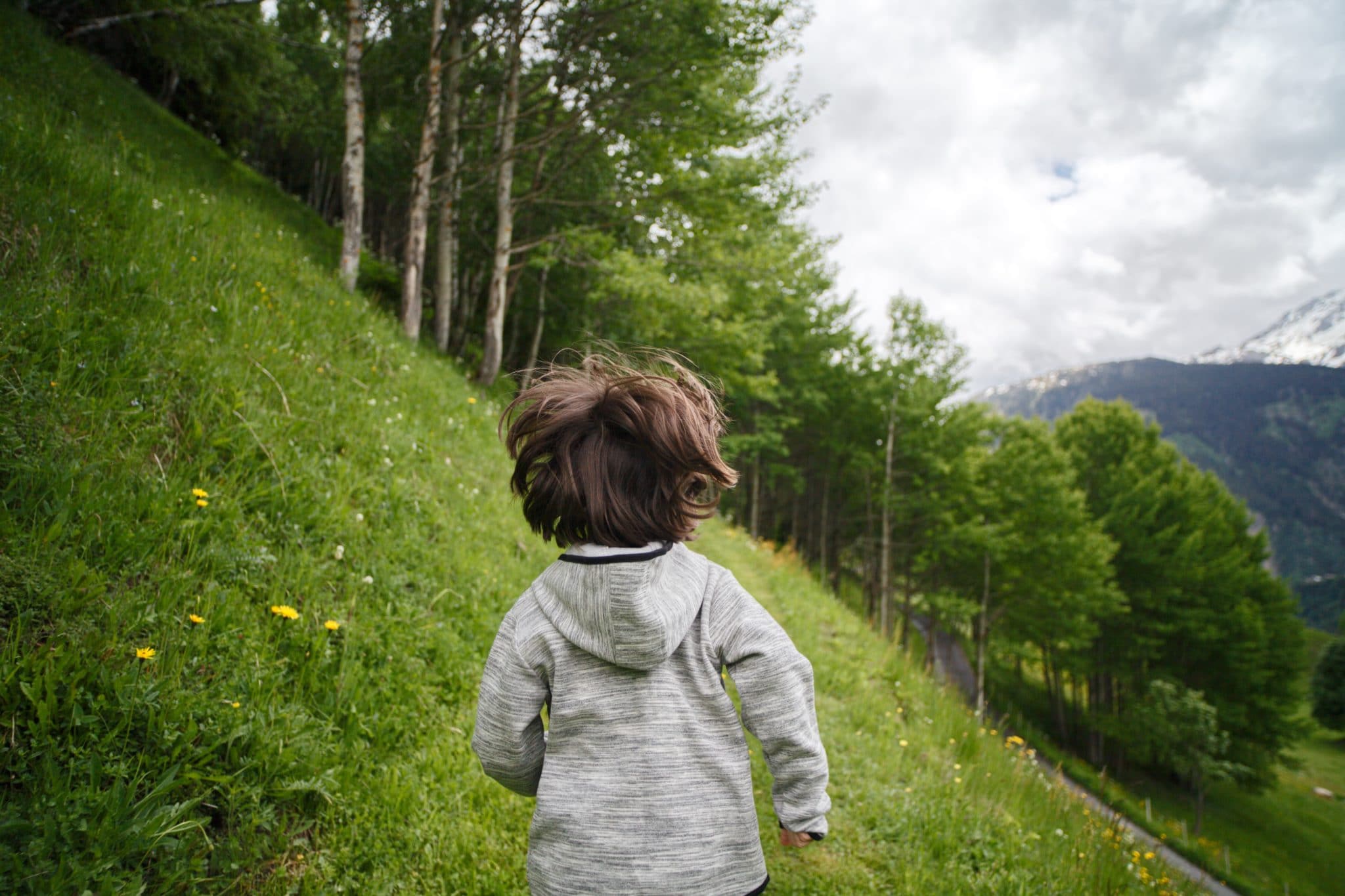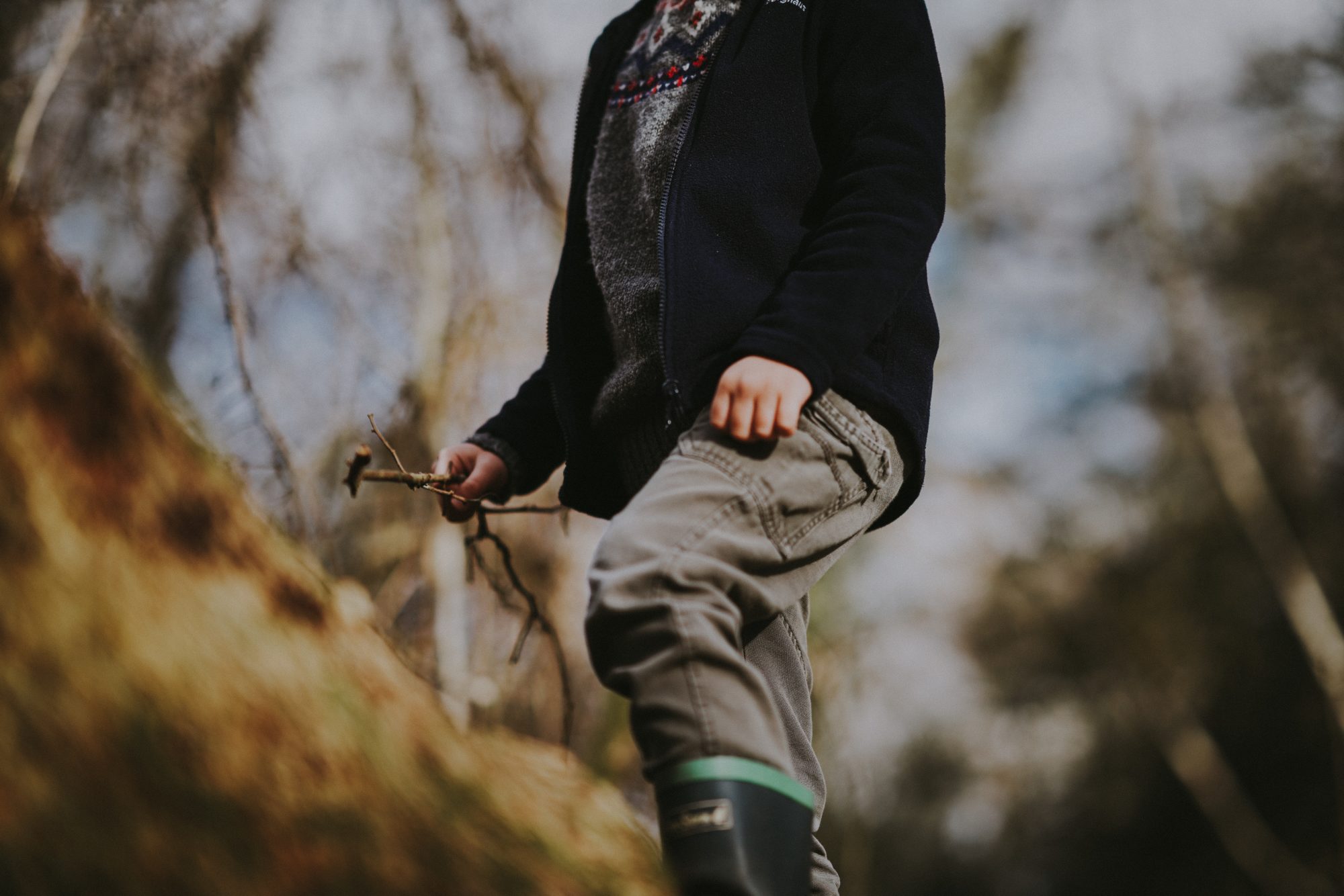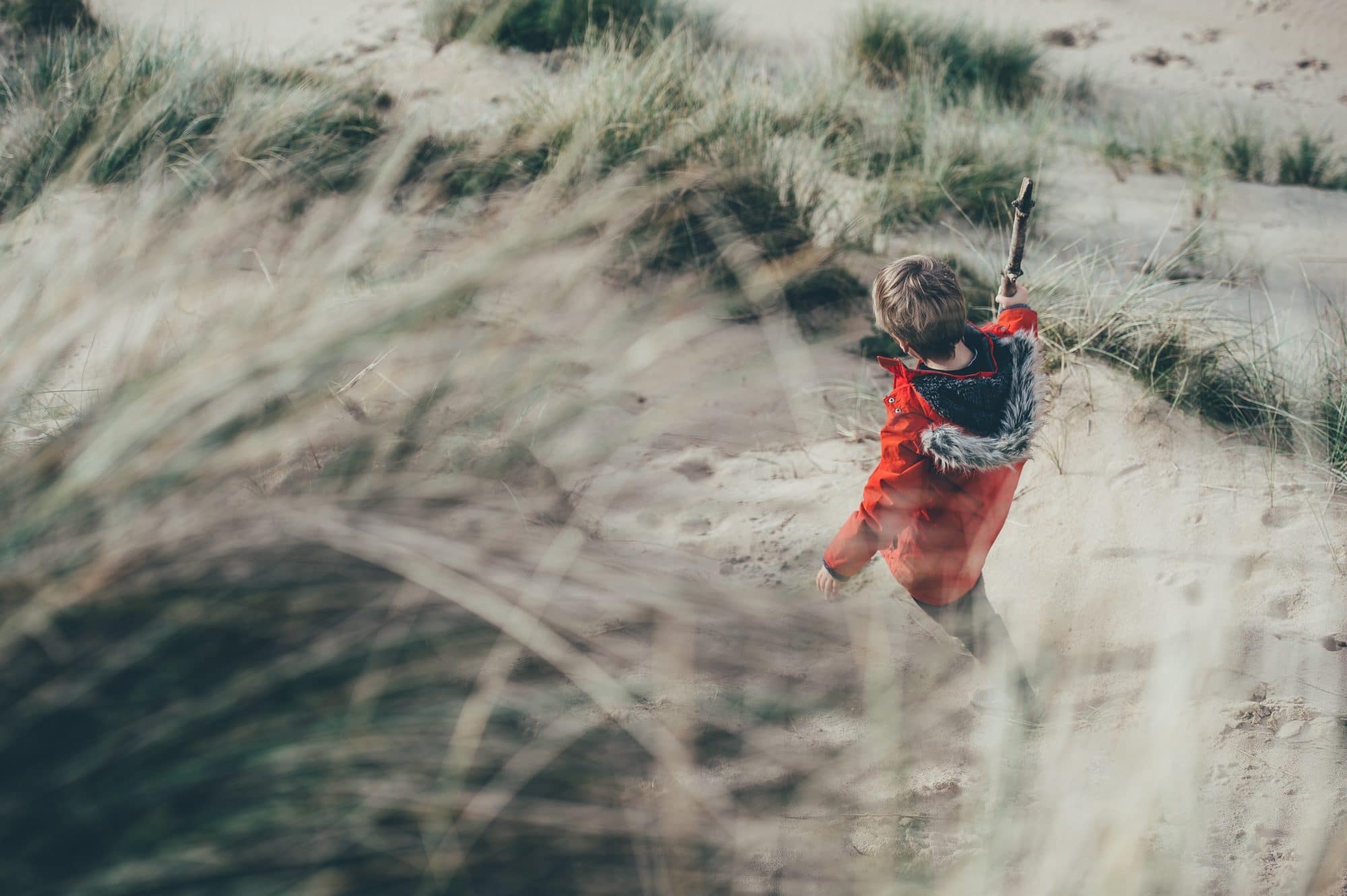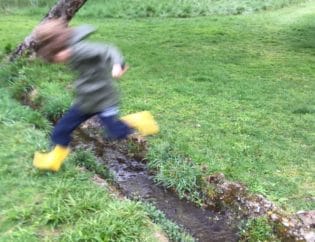
As parents, we want to get nature back into childhood but just how much nature is needed to benefit kids? New research comes out regularly on the benefits of the outdoors for kids but it’s not exactly clear how much nature is needed. Are a few potted plants around a desk enough for a child to experience the benefits of nature or is a weekly forest bath necessary?
 To help you figure out the proper daily dose of nature for your child, we dug into the most recent and widely-circulated studies to come up with this roundup of the recommendations for "just right" nature time each day.
To help you figure out the proper daily dose of nature for your child, we dug into the most recent and widely-circulated studies to come up with this roundup of the recommendations for "just right" nature time each day.
A Few Moments
Starting with the bare minimum, is just getting a look at nature enough to help a child's body and mind? Actually, researchers found that getting a view of green space, even for a brief period, gives the brain a chance to restore attention and reduce fatigue. But just having green space around isn’t enough. You need to take the green space in.
In another study, researchers found that adults with high anxiety levels slightly lowered their levels after looking at a plant. And almost 30% of adults saw a significant drop in their resting heart rate after looking at a plant.
Another benefit of a glimpse of green space is that it reduces cravings for unhealthy foods, in adults at least. Researchers at the University of Plymouth in Devon in the U.K. found that even passive exposure green spaces while indoors is associated with reduced cravings for unhealthy foods, alcohol and cigarettes.
Need another reason to ensure your child’s bedroom window looks out onto the garden? A growing body of evidence has found that simply viewing beautiful natural scenes can result in people being demonstrably more cooperative and generous to others, even in the presence of strangers.
Five Minutes
For a little more of a commitment but nothing too demanding, a study published in the Journal of Positive Psychology found that people who spent just five minutes sitting in nature experienced an increase in positive emotions. Interestingly, researchers also found that increasing the duration of the time spent in nature did not increase the number of positive emotions experienced.
Seventeen Minutes
Research led by the University of Exeter found that people who spend at least 120 minutes in nature a week (or just over 17 minutes a day) are significantly more likely to report good health and higher psychological wellbeing than those who don't visit nature at all during an average week. However, no such benefits were found for people who visited natural settings such as town parks, woodlands, country parks and beaches for less than 120 minutes a week.
Twenty Minutes
A headline-making study last year provided us with a magic number: 20 minutes. Researchers from the University of Alabama at Birmingham found that spending 20 minutes in any urban green space can improve happiness and wellbeing, regardless of whether the time is spent exercising.
Backing up this finding, researchers from the University of Michigan asked a group of adults to take "nature pills." The adults were asked to spend 10 minutes or more either sitting or walking in nature at least three times a week for an eight-month period. After analyzing the results, the researchers found spending 20 to 30 minutes sitting or walking outside led to the greatest decrease of cortisol levels.
And in a study of the effects of nature walks on children with ADHD, kids each took three different walks: one in a green space, and two in quiet, urban settings with minimal levels of foot traffic. The researchers found that the kids showed enhanced concentration abilities after the 20-minute nature walk "roughly equal to the peak effects of two typical ADHD medications.”

One Hour
One hour per day is the recommendation of the UK’s Wildlife Trusts, who have called for every child in the UK to spend one hour outside in nature, every day, as part of the school curriculum. The recommendation is based on a large study conducted by researchers at the Institute of Education at UCL to look into the effects of regular outdoor activities on children's wellbeing on over 450 primary school children aged eight or nine-years-old.
The National Wildlife Federation likewise recommends that parents give their child an hour of unstructured play outside every day. NWF calls this time the "green hour” and says, whether in the backyard, the local park, or a green space farther afield, time spent outdoors is essential to the healthy development of young minds, bodies, and spirits.
From the health sector, US Centers for Disease Control recommends that children have an hour each day of moderate physical activity to burn calories, tone the muscles and keep their weight under control. Though the CDC does not specify the physical activity that should be spent outdoors, outdoor play is, of course, an ideal way to satisfy the recommendation. One hour is also the recommendation of the Department of Health and Human Services which states that children and adolescents ages 6 through 17 years do 60 minutes (1 hour) or more of moderate-to-vigorous physical activity daily.

Three Hours
If you really want to get serious about your child's nature time, the folks behind 1000 Hours Outside challenge us to take our kids outside for 1000 hours a year or just about three hours per day. Their reasoning? It’s the amount of time the average child spends on screens each year. The entire point of 1000 Hours Outside is to attempt to match nature time with screen time. If kids can consume media through screens 1200 hours a year, then why not shift this time to a healthier outcome?
Pediatric occupational therapist Angela Hanscom calls active free play outdoors, “the most beneficial gift we as parents…can bestow on our children.” Hanscom says ideally kids should be playing outside 3 hours each day, and that doesn’t include organized sports.
Of course, spending time outdoors has to be balanced with many other priorities so determining how much nature is best for your children will depend on many factors. Your child's "just right" dose may be close to 20 minutes per day or several hours. Regardless, we know that kids who play outside are smarter, happier, more attentive, and less anxious than kids who spend more time indoors. Our consensus: a "just right" dose of nature is really an “as much as you possibly can" dose.












I love this- Often times I see 6 hours suggested (because of the Charlotte Mason philosophy), and I’ve noticed how it overwhelms parents. I appreciate how this shows the benefits of the importance of just a few minutes as well as how the benefits grow with time!
Yes, we agree. Parenting is hard enough. Spending time outside shouldn’t be a source of stress. Thank you for reading and commenting!
During my childhood (80s/90s), we tried to stay outside as much as possible. I had no idea how much this changed until I became a Mother. My goal now is a minimum of 1 hour outside daily and longer on weekends which includes hiking or lake.
Great approach! Thank you for reading and commenting!
Thank you. Very helpful. Our twins are spending 3-4 hours outside and I thought it might be too much. I feel reassured as a parent.
[…] How Much Time In Nature Does A Kid Really Need […]